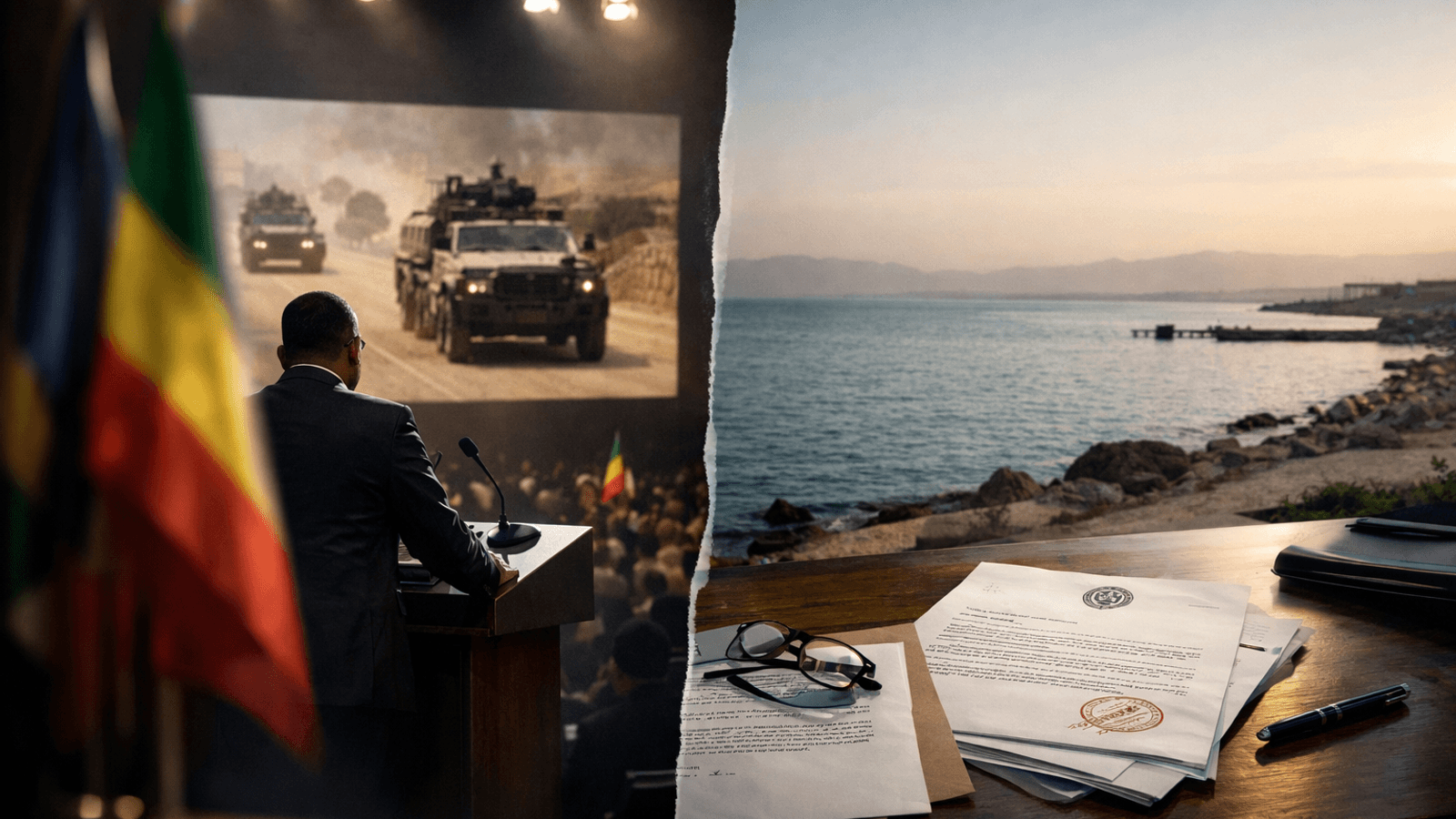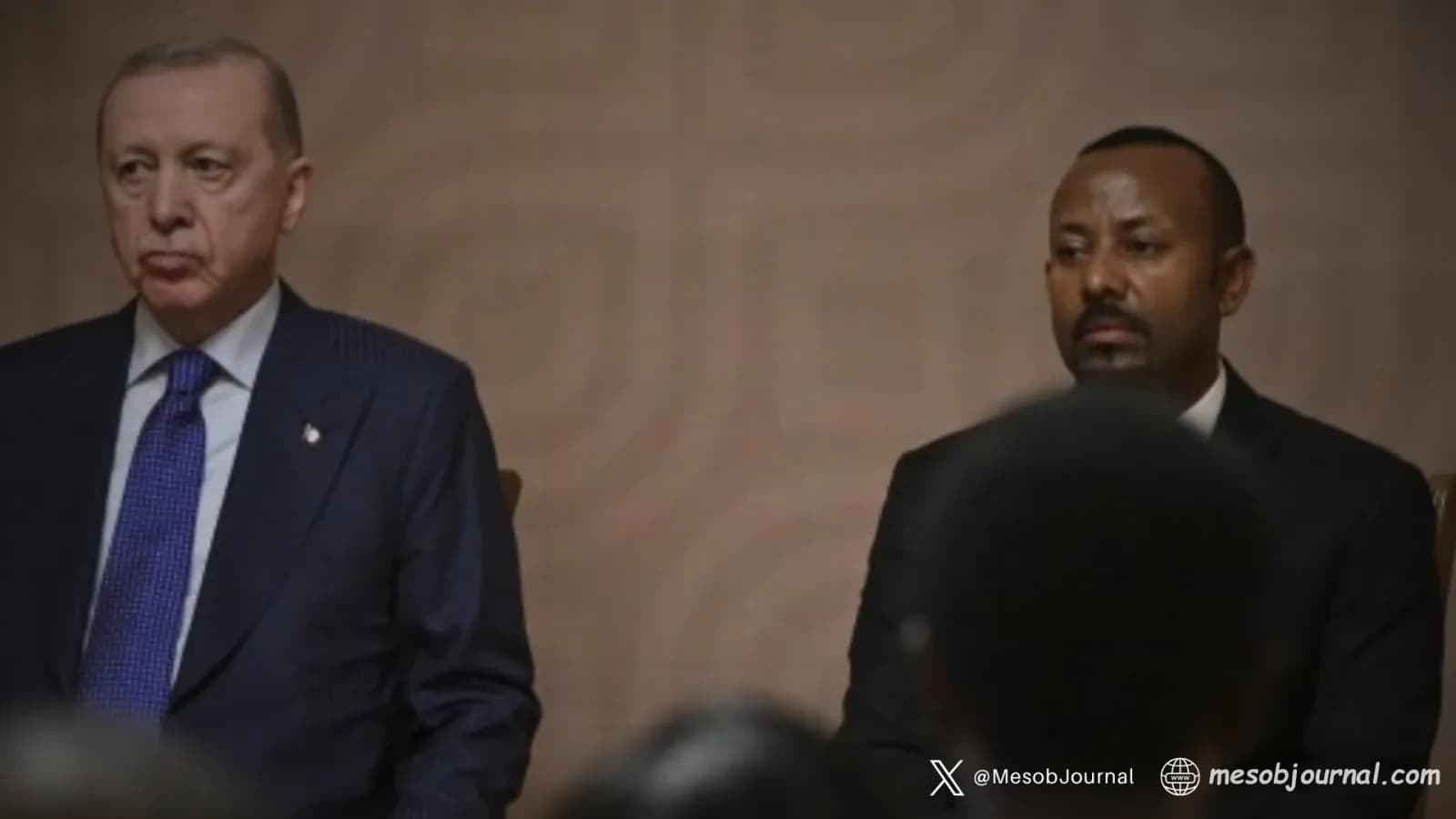Eritrea’s independence: Ethiopia’s never-ending excuse factory

Some stories never really age. Decades after Eritrea’s 1993 referendum, a certain breed of Ethiopian elites, including those “opposition” stalwarts who are waiting for Abiy to fall, have perfected the fine art of grievance-making. History, law, and basic logic? Mere props in their grand theater, endlessly twisted into a carnival of creative excuses. One could almost buy tickets to this legal circus.
1. “The Provisional government was Illegitimate”
Yes, clearly, Ethiopia’s transitional government of 1991 the one recognized by the UN, the OAU, and the world had absolutely no authority whatsoever. Never mind that it was in full control of the country, negotiating peace, and signing binding agreements. According to this logic, only mythical governments with permanent parliaments and golden gavels are allowed to make decisions. Eritrea should have waited until the stars aligned.
2. “There was no Parliament, No Constitution”
Because, of course, a government only counts if its parliament has velvet chairs and a constitution made of gold leaf. The Transitional Charter of Ethiopia, which explicitly allowed every “nation, nationality, and people” to secede if they so chose, apparently doesn’t exist. Facts are inconvenient, so we’ll ignore them.
3. “The Ethiopian people were not asked”
Eritrea’s crime, according to some, is that millions of ordinary Ethiopians were not summoned to vote on Eritrea’s independence. Forget the centuries of struggle, decades of armed resistance, and a legally recognized right to self-determination. Forget international law and UN recognition. Nope. If every citizen of Ethiopia didn’t raise their hand in approval, it’s illegal.
Let’s apply that logic everywhere: South Sudan would still be under Khartoum’s rule, and East Timor would never have left Indonesia. But hey, Ethiopia is special, apparently.
4. Procedural technicalities = National tragedy
No parliament, no constitution, transitional government… and yet somehow, the referendum was a crime. Never mind that UN observers declared it free and fair, that Ethiopia recognized it immediately, and that the international community celebrated Eritrea’s new sovereignty. Because when it comes to Ethiopia’s narrative, procedural nitpicking trumps reality.
Ethiopia seems to have perfected the art of selective memory. The transitional government is deemed illegitimate except when convenient, the charter explicitly allowing Eritrean secession is treated as if it never existed, UN recognition is dismissed as irrelevant, and history itself is conveniently rewritten to suit a narrative of imagined grievance. It is almost a performance: decades of legal and political reality are contorted to fit a personal story of national disappointment.
It is sealed once and for all!!
Eritrea’s referendum was legal, internationally recognized, and historically justified. Ethiopia’s persistent complaints? A spectacular display of legal acrobatics, selective amnesia, and nationalist melodrama.
If history were a court of law, Ethiopia’s arguments would be thrown out for lack of evidence, lack of legal standing, and most importantly, lack of common sense. Meanwhile, Eritrea moves forward, independent, recognized, and undeniably sovereign. Some tantrums just never age gracefully.
What is even more disheartening is that the so-called international community, along with regional bodies like the African Union, headquartered in the very country making these absurd claims remains conspicuously silent, failing to call out narratives and actions that risk destabilizing the entire Horn of Africa.
Of course, it’s not exactly the kind of wisdom Eritreans will take lightly. If anything, this endless blame game only reinforces the conviction that no Ethiopian politician is truly different—just a rotating cast in the same tired drama. And so, when the next actor replaces this toddler prime minister, Eritrea will likely see little reason to engage. After all, why reopen a door that’s been slammed shut so many times? For Ethiopia, access to the sea may not just be difficult—it’s fast becoming a permanently sealed option, courtesy of its own political theatrics.
Related stories

The “Powder Keg” Script: Crisis Group’s Eritrea Bias
International Crisis Group’s 18 February 2026 briefing advertises itself as conflict prevention. In reality, it performs something closer to narrative management: it repackages Ethiopia’s Red Sea ambition as a “grievance” to be accommodated, while keeping Eritrea boxed into the f

Ethiopia: Abiy's War Script and the Media’s False Balance on Eritrea
The lazy framing is already being warmed up: “tensions are rising,” “neighbours trade claims,” “both sides must de-escalate.” It sounds responsible. It reads balanced. And it quietly deletes the one fact that matters: one side has spent years normalising war talk as policy. If y

Erdogan in Addis: sovereignty first as Abiy beats sea-access drum
Abiy Ahmed tried to stage the usual Addis photo-op when Turkey’s President Recep Tayyip Erdoğan arrived. But the camera caught something different: a stiff, guarded prime minister sitting beside a visitor who didn’t look like he came for flattery. What played out at the joint app

Fenkil’s Dawn: The Martyrs Who Made Eritrea Unbowed
Some victories are celebrated once. Others are lived—every day—like a vow you can’t afford to break. At Twalet, the Tanks Don’t Rust In Massawa, the Red Sea air has a way of softening everything—except memory. You can feel it near Twalet, where three tanks stand fixed as a monume

